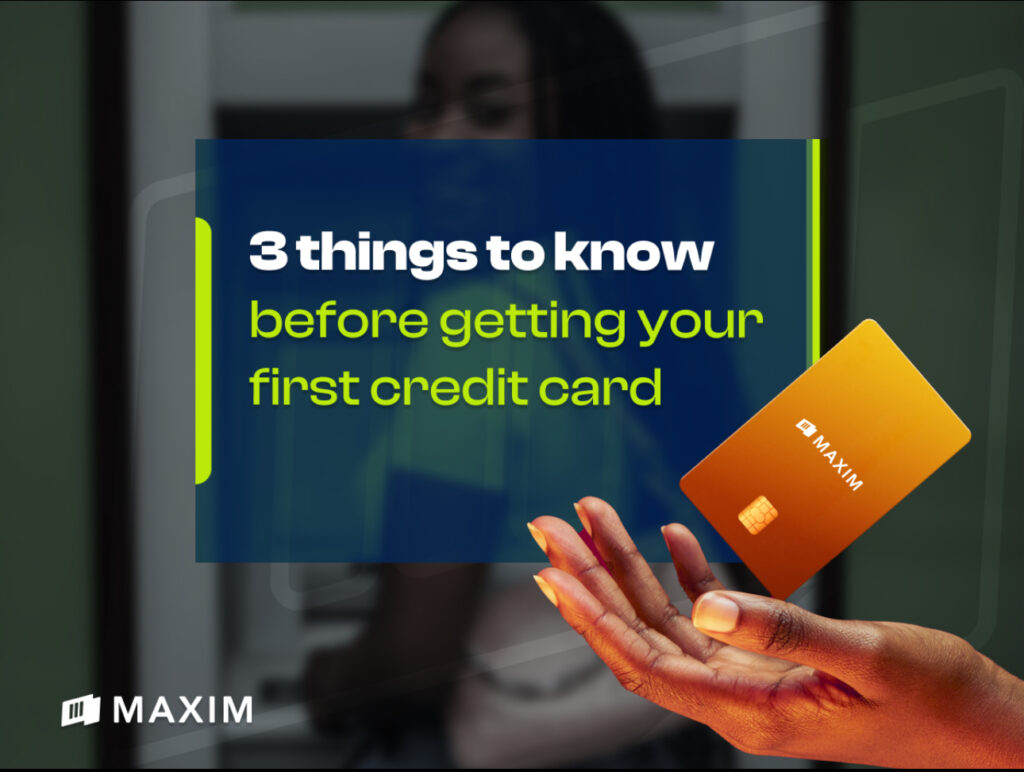
Getting your first credit card is a significant financial milestone. It opens doors to numerous opportunities, from building your credit history to enjoying rewards and benefits. However, with great power comes great responsibility.
Before diving into the world of credit, it’s crucial to arm yourself with knowledge to make informed decisions and avoid common pitfalls. Here are three essential things you should know before applying for your first credit card.
- Understanding Credit Card Terms and Conditions
Knowing the terms and conditions of your credit card is one of your first steps. This may sound tedious, but it’s essential for making the right choice and avoiding unpleasant surprises.
Most times, important details on how your credit card operates and possible fees can be found in the fine print of the agreement. Make sure to read and fully understand these
details.
Key Terms to Watch Out For:
- APR (Annual Percentage Rate): This is the interest rate you’ll pay if you carry a balance on your card.
- Grace Period: This is the time you have to pay your bill in full before interest starts accruing. A longer grace period is beneficial.
- Fees: Be aware of any annual fees, late payment fees, and foreign transaction fees. Some cards come with no annual fee, which can be a good option for beginners.
- Rewards: Many cards offer rewards such as cashback, points, or miles. Choose a card that offers rewards aligned with your spending habits.
- Building and Handling Credit Responsibly
Using your credit card wisely can help you build a good credit score, which is essential for future financial endeavours like getting a mortgage or even a loan. This is why it is very important to be responsible.
Some tips that might help you include:
Paying Your Bills on Time: Late payments can significantly damage your credit score. Set up reminders or automatic payments to ensure you’re always on time.
– Keeping Balances Low: Try to keep your credit card balance below 30% of your credit limit. High balances can negatively impact your credit score.
– Avoid Unnecessary Debt: Only charge what you can afford to pay off in full each month. Avoid using your credit card for impulse purchases or non-essential items.
3. Potential Risks and How to Avoid Them
While credit cards offer many benefits, they also come with potential risks. Here are some common risks to be aware of and how to avoid them:
Overspending: It’s easy to overspend when you’re not using cash. Stick to a budget to avoid this trap. To avoid this, determine how much you can afford to spend each month and stick to it.
High-Interest Debt: If you carry a balance, interest charges can quickly add up. Aim to pay off your balance in full each month. It is important to know how interest is calculated on your credit card to avoid surprise charges.
Identity Theft: Credit cards can be targets for fraud. Protect your personal information and monitor your accounts regularly for any unauthorised transactions and be cautious about sharing your credit card details.
By understanding the terms and conditions of having a credit card, you can make the most of this powerful financial tool. Remember, the key to successful credit card usage lies in making informed decisions and staying disciplined with your spending habits.
Leave a Reply